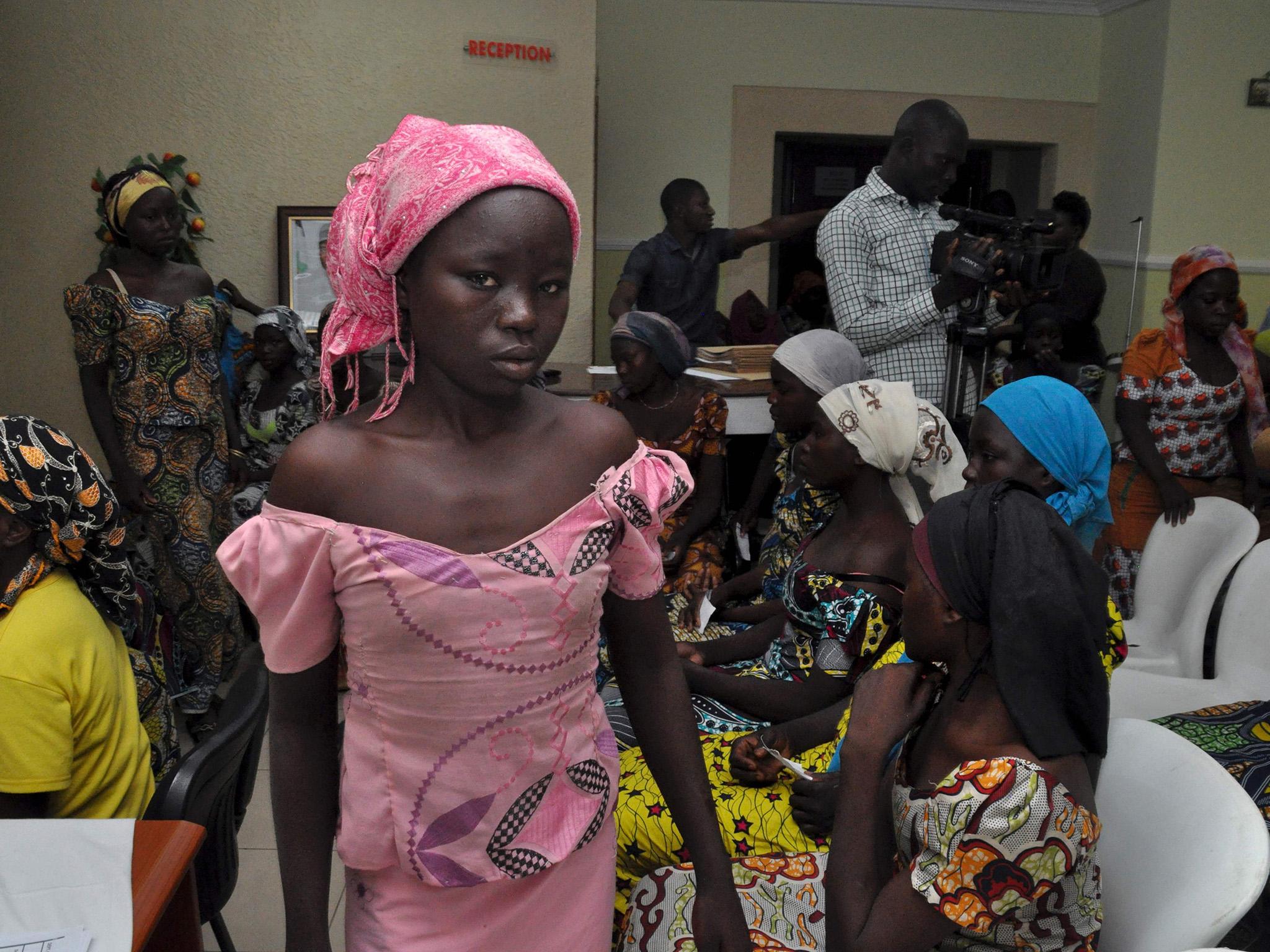Freed Chibok schoolgirls 'were released in exchange for five Boko Haram commanders'
The confirmation comes as the girls prepare to meet Nigeria's President Muhammadu Buhari

Your support helps us to tell the story
From reproductive rights to climate change to Big Tech, The Independent is on the ground when the story is developing. Whether it's investigating the financials of Elon Musk's pro-Trump PAC or producing our latest documentary, 'The A Word', which shines a light on the American women fighting for reproductive rights, we know how important it is to parse out the facts from the messaging.
At such a critical moment in US history, we need reporters on the ground. Your donation allows us to keep sending journalists to speak to both sides of the story.
The Independent is trusted by Americans across the entire political spectrum. And unlike many other quality news outlets, we choose not to lock Americans out of our reporting and analysis with paywalls. We believe quality journalism should be available to everyone, paid for by those who can afford it.
Your support makes all the difference.Five Boko Haram commanders were released in exchange for the freedom of 82 Chibok schoolgirls kidnapped by the extremist group three years ago, a Nigerian government official has said.
The confirmation of the prisoner swap came a day after the young women were liberated. They were expected to soon meet with the country’s President and their families.
There was no immediate comment about the exchange from the Nigerian presidency or Boko Haram, which has links to Isis.
President Muhammadu Buhari’s office said previously that “some” Boko Haram suspects in detention had been released for the freedom of the schoolgirls, but it did not give details.
The young women were flown by military helicopters from northeastern Nigeria to Abuja, the capital.
The International Committee of the Red Cross, which along with the Swiss government mediated the Nigerian government’s negotiations with Boko Haram, said that the girls would soon meet with their families.
“They will face a long and difficult process to rebuild their lives after the indescribable horror and trauma they have suffered at the hands of Boko Haram,” said Pernille Ironside, acting representative of Unicef Nigeria.
Authorities say 113 schoolgirls remain missing from the group of 276 abducted from their boarding school in April 2014. Girls who escaped early on said some of their classmates had died from illness.
Others did not want to come home because they’d been radicalised by their captors, they said.
Human rights advocates also fear some of the girls kidnapped from the Chibok boarding school have been used by Boko Haram to carry out suicide bombings.

Anxious families were awaiting the official list of names of the 82 schoolgirls freed. Some parents did not live long enough to see their daughters released, underscoring the tragedy of the three-year-long saga.
A first group of 21 Chibok girls were freed last October and have been in government care in Abuja for medical attention, trauma counselling and rehabilitation. Human rights groups have criticised the decision to keep the girls in custody in Abuja, nearly 560 miles from Chibok.
It was not immediately clear whether the newly freed girls would join them.
Amnesty International’s Nigeria office said that they should be released to their families quickly and not subjected to lengthy government detention, adding that the girls don’t deserve to be put through a “publicity stunt” and deserve privacy.
Though Boko Haram has abducted thousands of people during its eight-year insurgency that has spilled across Nigeria’s borders, the Chibok mass kidnapping in 2014 horrified the world and brought the extremist group to international attention.
The failure of Nigeria’s former government to act quickly to free the girls sparked a global Bring Back Our Girls movement; US first lady Michelle Obama posted a photo with its logo on social media.
The Bring Back Our Girls campaign today said it was happy that Nigeria’s government had committed to rescuing the 113 remaining schoolgirls.
“We urge the President and his government to earnestly pursue the release of all our Chibok girls and other abducted citizens of Nigeria,” the group said in a statement.
Mr Buhari late last year announced Boko Haram had been “crushed,” but the group continues to carry out attacks in northern Nigeria and neighbouring countries. Its insurgency has killed more than 20,000 people and driven 2.6 million from their homes, with millions facing starvation.
AP
Subscribe to Independent Premium to bookmark this article
Want to bookmark your favourite articles and stories to read or reference later? Start your Independent Premium subscription today.
Join our commenting forum
Join thought-provoking conversations, follow other Independent readers and see their replies
Comments